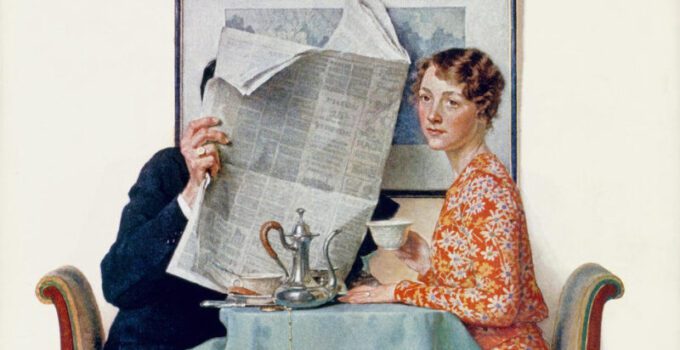Recently, two major newspapers shocked readers by announcing that they will not be endorsing a presidential candidate in the upcoming election cycle. This decision was made at the request of two billionaires who have a stake in the estate tax.
Jeff Bezos, the owner of The Washington Post, and Patrick Soon-Shiong, the owner of The Los Angeles Times, prohibited their editorial boards from releasing their already prepared endorsements for the Harris-Walz ticket.
This move led to the resignation of editors and a decline in subscribers for both papers. This situation made me wonder when endorsements became a standard practice and what impact they actually have.
In the United States, newspaper endorsements for presidential candidates date back to 1860. That year, The New York Times, The Chicago Tribune, and other major papers supported Abraham Lincoln for president.
Over the years, these newspapers have endorsed various candidates, often reflecting their political leanings. The Los Angeles Times, for example, was known for its unwavering support for Republican nominees until the 1970s. The paper’s endorsements were influenced by the conservative owners, the Otis-Chandler dynasty.
The New York Times also has a history of endorsing candidates, with a mix of support for both Democrats and Republicans over the years. The paper’s endorsements have varied based on different issues and political climates.
Despite the tradition of endorsements, the impact of these endorsements on the election outcome is debatable. Some argue that they do not significantly influence voters, especially in today’s media landscape. However, newspapers continue to endorse candidates, hoping to engage readers and uphold their journalistic integrity.
Ultimately, the decision to endorse a candidate is complex and requires careful consideration of the newspaper’s values, readership, and political landscape. As media ownership continues to consolidate and evolve, the future of endorsements remains uncertain.
Les recettes, les actualités et l’indépendance des médias
Dans un éditorial bien articulé, la chroniqueuse d’opinion du Washington Post, Karen Attiah, a souligné qu’une source d’information indépendante ne doit pas être silencieuse ni lâche. Elle a cité l’ancien rédacteur en chef du Post, Philip Geylin, qui, malgré une allergie au mot « soutien », pensait qu’un journal devrait être prêt à prendre position sur une question sur laquelle tout citoyen soucieux de l’intérêt public est censé arriver à une conclusion. De plus, Geylin a poursuivi en affirmant que cette conclusion devrait être basée sur « les bonnes priorités… les valeurs relatives… et les principes en jeu dans une situation particulière. »
Vous tirerez vous-même vos propres conclusions sur les principes en jeu, tout comme Jake, Jeff Bezos, Patrick Soon-Shiong et tous les Otises-Chandler l’ont fait. J’espère que vous le ferez de manière indépendante, mais je ne suis qu’une personne lambda, même pas un expert en mathématiques, qui souhaite que nous ayons une presse libre et un pays aimable.
Mais pour reprendre les paroles du candidat soutenu mais échoué George McGovern, « La plus haute forme de patriotisme n’est pas une acceptation aveugle de la politique officielle, mais un amour de son pays assez profond pour l’appeler à un niveau supérieur. »
D’une manière ou d’une autre, je ne pense pas qu’il parlait de Blue Origin.



